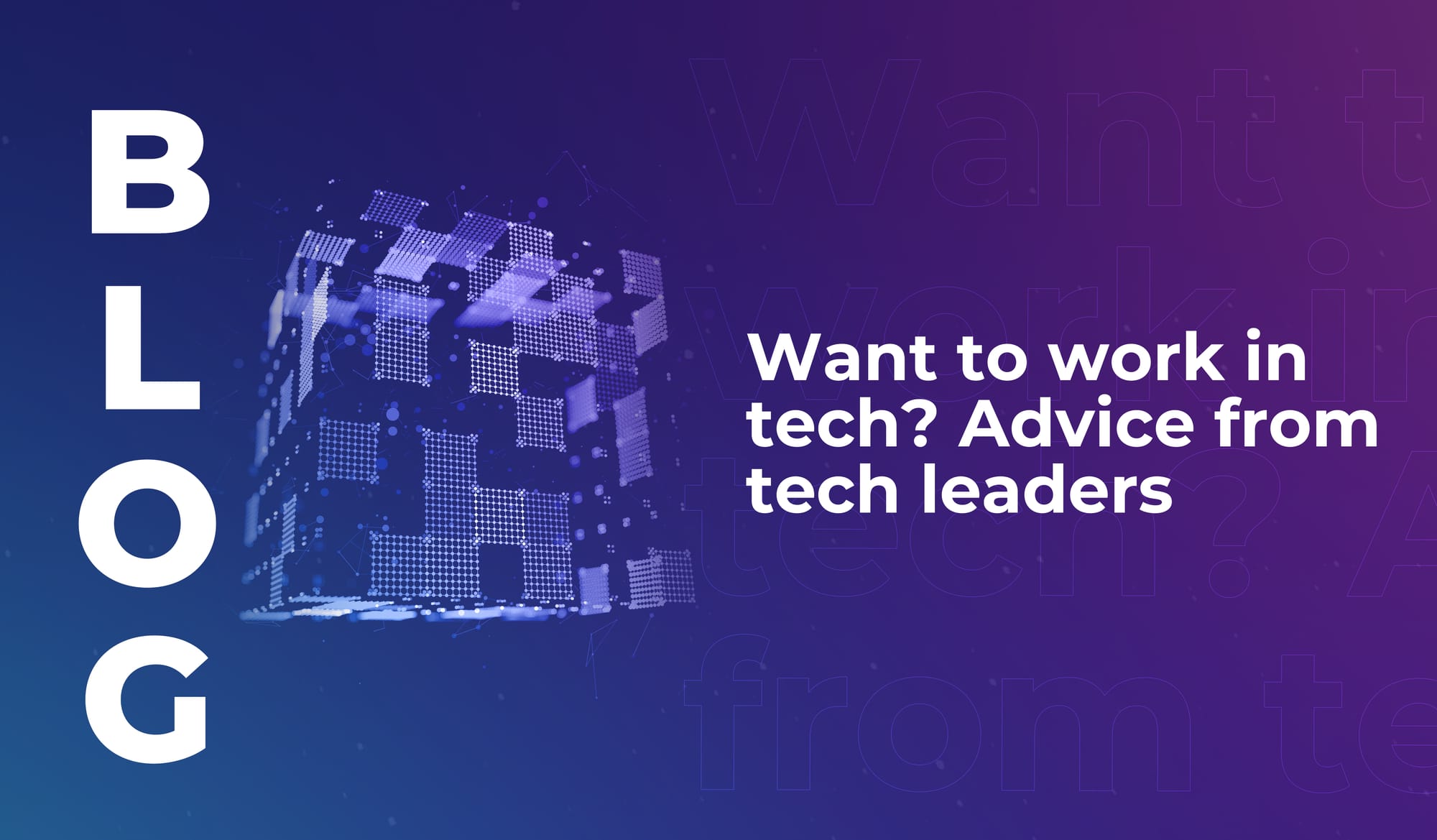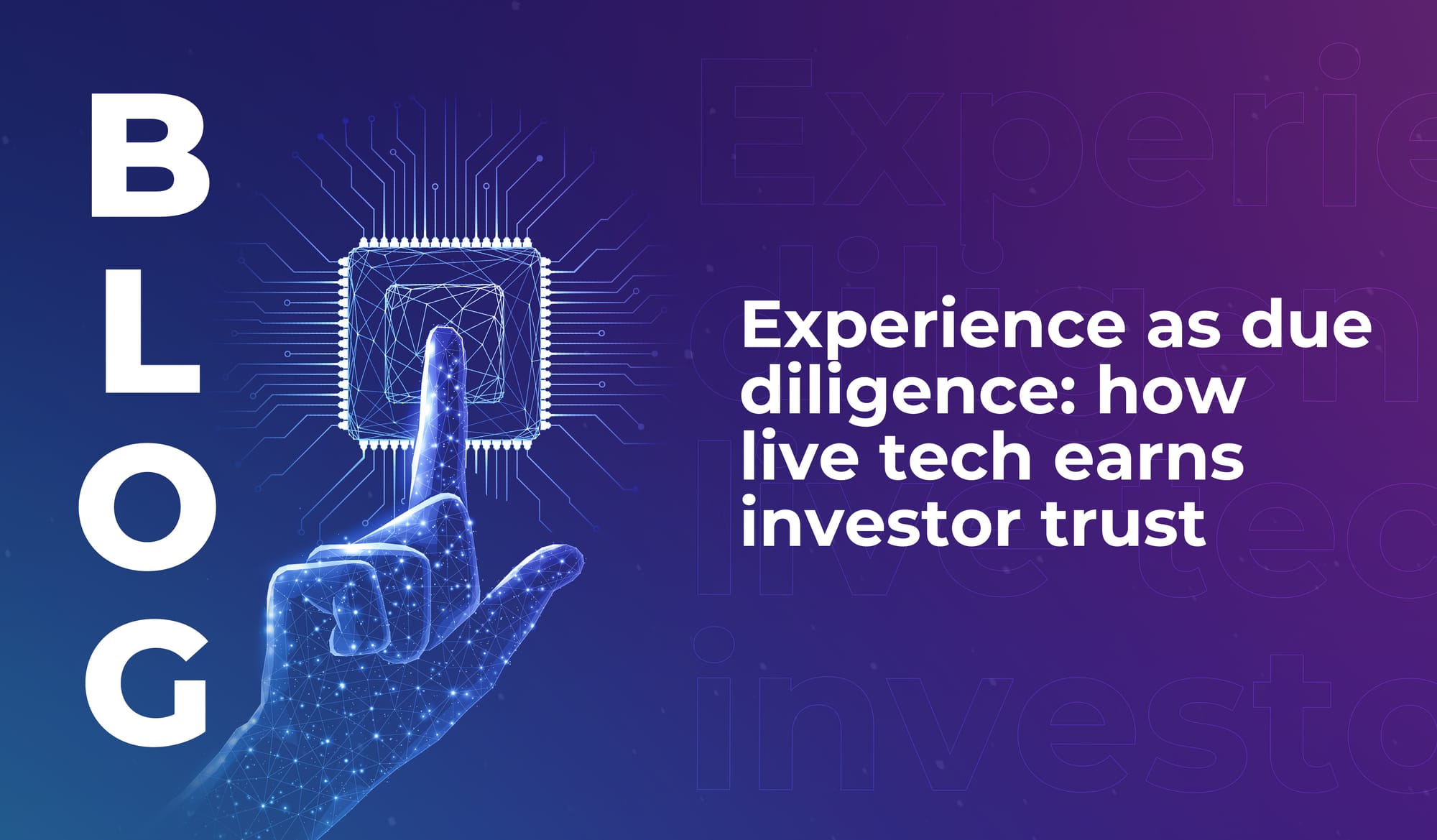
Why CoLAB works: how global brands use events to enter new markets
Learn how global brands use events to enter new markets. Build trust and accelerate relevance through CoLAB collaborations at LEAP.


Maybe you’ve just graduated. Perhaps you’re still figuring out where you fit; or maybe you’re watching the rise of AI and wondering if there’s any room left for you at all.
You’re definitely not alone.
The headlines keep reminding tech professionals that AI is coming for their jobs – especially entry-level ones. GenAI tools are already handling tasks that used to be the bread and butter for junior developers, writers, analysts, and designers. So it’s completely understandable that many early-career professionals feel like they’re competing against the machines they want to work with.
It’s worth remembering that every time a door closes, others open even wider. If you want to build a career in tech today, you don’t have to find a way to beat AI. Instead, you need to learn how to work alongside it – and identify where the real opportunities lie.
If you’re taking your first steps towards a career in tech, let’s talk about how to get in, stay in, and thrive.
Tech isn’t just about coding. It’s about curiosity, problem-solving, and imagination. Ioana Matei (Chief Metaverse Officer at P&G) put it simply: “Believe in yourself – no one is an expert in this space. You can always learn.”
She was speaking about XR design specifically, but this message applies to every field of tech. Learning is always possible; and that’s especially true in emerging fields like immersive tech, AI, or Web3, where the rules are still being written. “Use your network to learn, create opportunities and ask for help,” Ioana added.
The best tech professionals (and the ones who sustain their careers over decades) are learners first. They’re not waiting to be told what to do – they’re figuring out how to do what hasn’t been done yet.
For Dr. Kathrin Kind-Trueller (Chief Data Scientist, AI A. Director Nordics), the most exciting space right now is generative AI:
“It’s the promise of generative AI to reshape the canvas of innovation, the potential to democratise creation, and the opportunity to redefine the boundaries of what's possible,” she told us.
But Kind-Trueller was also quick to point out the weight of responsibility that comes with that power. “The excitement is not merely in the creation but in the thoughtful cultivation of these technologies.”
So what should you learn? Learn to work with AI, not against it. Understand how to prompt it, fine-tune it, critique its outputs, and guide it toward ethical applications. And build soft skills – communication, collaboration, and creativity – that will allow you to bridge the gap between machines and humans.
Jobs come and go; but if you’re intentional about it, you can build a career.
Leon Winkler (Senior Director of International Events at Ubisoft HQ) has been with one company for nearly two decades – or in other words, an eternity in tech. “One of the main reasons I’ve been able to dedicate nearly two decades to Ubisoft is the company’s commitment to fostering an environment where employees can truly be themselves,” he said. “Ubisoft encourages authenticity.”
For Winkler, long-term growth came from trust and autonomy: “From the very beginning, I’ve been given the freedom to experiment, innovate, and drive projects that align with both my professional goals and the company’s vision.”
That trust is earned over time – and starts with showing initiative. Early in your career, say yes to opportunities. Be the person who volunteers. Try different roles, even if they’re not glamorous. Learn from every team you join.
Where should you be looking? Don’t just follow the crowds to Silicon Valley or London. Right now, the Middle East – especially Saudi Arabia – is one of the most exciting tech markets in the world.
“Saudi Arabia is currently the place to be,” said LEAP 2024 speaker Margarete Schramboeck (Board Member at Aramco Digital). “Companies that want to do business here must be fast and innovative. Seize the moment, be brave and professional.”
The Kingdom is investing heavily in digital transformation, with Vision 2030 driving innovation across every sector, from smart cities and fintech to sustainability and education. And tech businesses here are rushing to put together strong, diverse teams that can understand the country’s goals and position themselves to contribute in a meaningful way.
There are now more than 1,600 startups in Saudi Arabia, supported by a growing network of VCs and government initiatives. “The government is actively working to attract foreign investment and position the Kingdom as a regional hub for innovation,” Hasnae Taleb (Chief Investment Officer at Ento Capital) told us.
So if you're looking for a tech career with momentum, this is a place to watch.
As much as tech is about skills and ideas, it’s also about people. Maha Abouelenein (Founder and CEO at Digital and Savvy) spoke to us about personal branding – and how it’s changed everything.
“People don’t just follow companies anymore – they follow people. Today, everyone in the organisation plays a role in building and protecting the company’s reputation – they are all ambassadors.”
That means your online presence – your LinkedIn profile, the way you communicate, the stories you tell – matters more than ever. “Every founder or CEO should build a personal brand,” Abouelenein said.
But this extends to you, too, even if you’re just starting out. How you show up online matters. Share what you’re learning. Connect with others. Ask good questions. Build your narrative.
Entry points to the tech industry are changing. What the industry needed five years ago isn’t what it needs today; and AI is accelerating everything.
But that absolutely does not mean you’re too late. The opposite, in fact; this new chapter of tech needs new voices, new builders, and new dreamers.
In the words of LEAP 2025 speaker Aman Merchant (Chief Provocateur at Radicle): “If I’m remembered for anything, it should be for catalysing ecosystems that empower future generations to build the future, not just inherit it.”
So if you want to work in tech, start now. Start learning. Start building. Start contributing. And above all, stay curious.

Learn how global brands use events to enter new markets. Build trust and accelerate relevance through CoLAB collaborations at LEAP.

At global tech events, your brand isn’t competing for space – it’s competing for memory. Memory is built through participation, so the brand collaboration opportunities at LEAP are designed for it.

For investors at LEAP, experience is the first stage of due diligence – and has more impact than a pitch deck. Find out how the Tech Arena fast-tracks investor conversations.

Learn how global brands use events to enter new markets. Build trust and accelerate relevance through CoLAB collaborations at LEAP.

At global tech events, your brand isn’t competing for space – it’s competing for memory. Memory is built through participation, so the brand collaboration opportunities at LEAP are designed for it.

For investors at LEAP, experience is the first stage of due diligence – and has more impact than a pitch deck. Find out how the Tech Arena fast-tracks investor conversations.